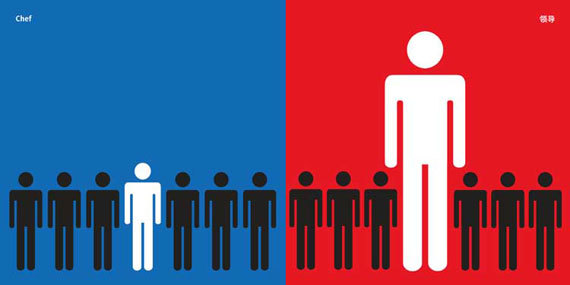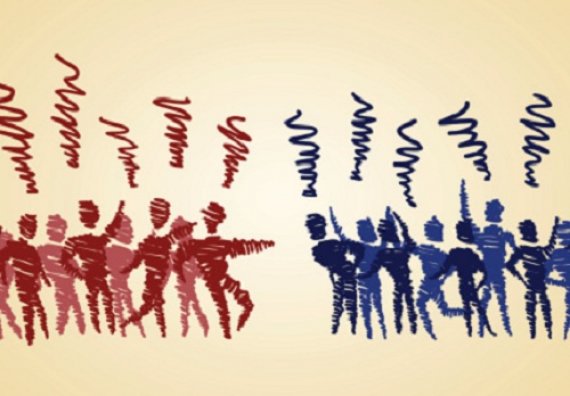No matter how much you’ve traveled, adapting to a new mindset and making the foreign feel familiar can be tough, but it’s a fact of global transition. As a North American, you’ve probably been raised with a Western Mindset (WM), and it’s likely that you’ll be running up against the Traditional Mindset (TM).
Culture is just a mindset rooted in a series of historical events that took place in a particular geographic location. Although culture is dynamic, changing, and increasingly influenced by the forces of globalization, all cultures share some common dimensions. What distinguishes them, is how they are interpreted.

unwritten.rules
A WM is characterized as a loose-knit society that’s “me-centered” and people are only expected to look after themselves and immediate family. The emphasis is on getting things done, so there’s only an obligation to yourself. This value is directly tied to your self-respect, and makes you part of a guilt-based society. It’s about the “here and now,” so there’s little judging or criticism for mistakes.
WM is comfortable with risk and living in the “land of opportunity”. You are confident and often opinionated, that can come off as self-righteous. You don’t shy away from the spotlight and also don’t mind being proud of your accomplishments. You favor a “live to work” mentality, dominated by the values of achievement, competition, and success. You appreciate performance and ambition, although this can be polarizing. You’re also driven by, and drawn toward, all things big and fast. Bigger is better (despite the impact on the environment).
Society at large is “flat” and you believe inequality is every person’s right and that “all men are created equal” (in theory). Power is (again, in theory) distributed equally, and you don’t depend on authority for permission because each person is personally empowered to act independently. In a WM, change happens by evolution.

WM are risk taker and deal with the unknown by controlling it with rigid codes of behavior or laws. You can appear intolerant of eccentric beliefs and ideas even though you live in the “land of the free”. You are a bottom-line person who thinks tomorrow will never come, a short-term thinker who relies on quick “quarterly results.” You are concerned primarily with the absolute truth and don’t save much money. You’ve got an inner urge to work hard, and although displaying emotions are acceptable, conflict is threatening, so your need for agreement is strong.

The TM places great value on belonging to, and having a loyalty of, groups like families, clans, and tribes in exchange for loyalty. This is a tightly knit “we-centered” society, that looks out for its each other because people and relationships are the first priority. The primary obligation is to family. If that fails to happen, the consequence is losing “face” (status + respect = credibility) to those relationships (living or dead). You are modest, caring, cooperative, and demonstrate a social consciousness for the weak, most always by consensus. You prefer “small and slow” and maintaining a “quality of life” is what’s important.
To communicate with a TM, one must “listen loudly” as body language, silence, or space can be used instead of words. Harmony is often chosen over sincerity or truth, so making unpopular decisions can be difficult. Time is not commodified, and being in “the moment” can cause delays for WM‘s as you tend to interrelate people with other things at the same, causing confusion about intentions.

The TM works to live. There’s a pecking order you are accustomed to so that each person has a place, or is ascribed to a class, and no further justification is necessary. Inequalities among people are accepted and you probably depend on others to make the decisions. Power holders, government, or other titled authorities have privileges and change happens usually by revolution.
You tend to have a relaxed attitude toward life and work. Practice counts more than principles. Emotions are minimized. Work is not necessarily viewed as a virtue, making society as a whole more relaxed, yet attitudes about conflict and competition are not mutually exclusive. The TM doesn’t need a lot of rules as they are somewhat more flexible, however they need a lot of information to make decisions or take risks to avoid failure and save face.
culture.hack
Obtain cultural awareness with the help of an intercultural training coach about your particular cultural tendencies, understanding the expectations of your new host culture values, and practicing these new behaviors, until it until comes naturally. By being an active listener and being empathetic, you will learn from interacting. Remember to be flexible and persistent. Also, remember that changing behavior takes time. Know yourself, and which cultural lenses through which you view the world.
– Read as much as you can by people who blazed the trail of expat adventure before you.
– Use Google Street View to “drive” along the roads where you may live. Watch some YouTube videos about the region and country.
– Ask for pre-departure intercultural coaching for you and the family.
– Join an online expat community to ask questions, get reassurances about your concerns, and socialize to make friends.

Visit my website Expat Whisperer for expat coaching packs or listen to my original podcasts on demand. You might also enjoy the always fascinating culture blog feed that deconstructs everyday life. Or, take one of my labs you won’t find anywhere else. I may be travelling somewhere in the world, but you can always find me on LinkedIn, Facebook, Pinterest, and Twitter.

